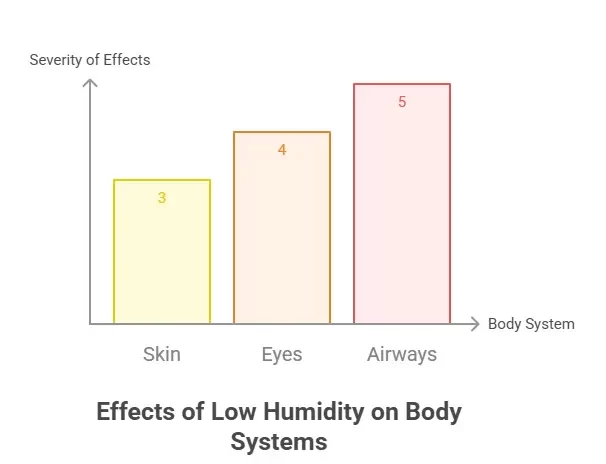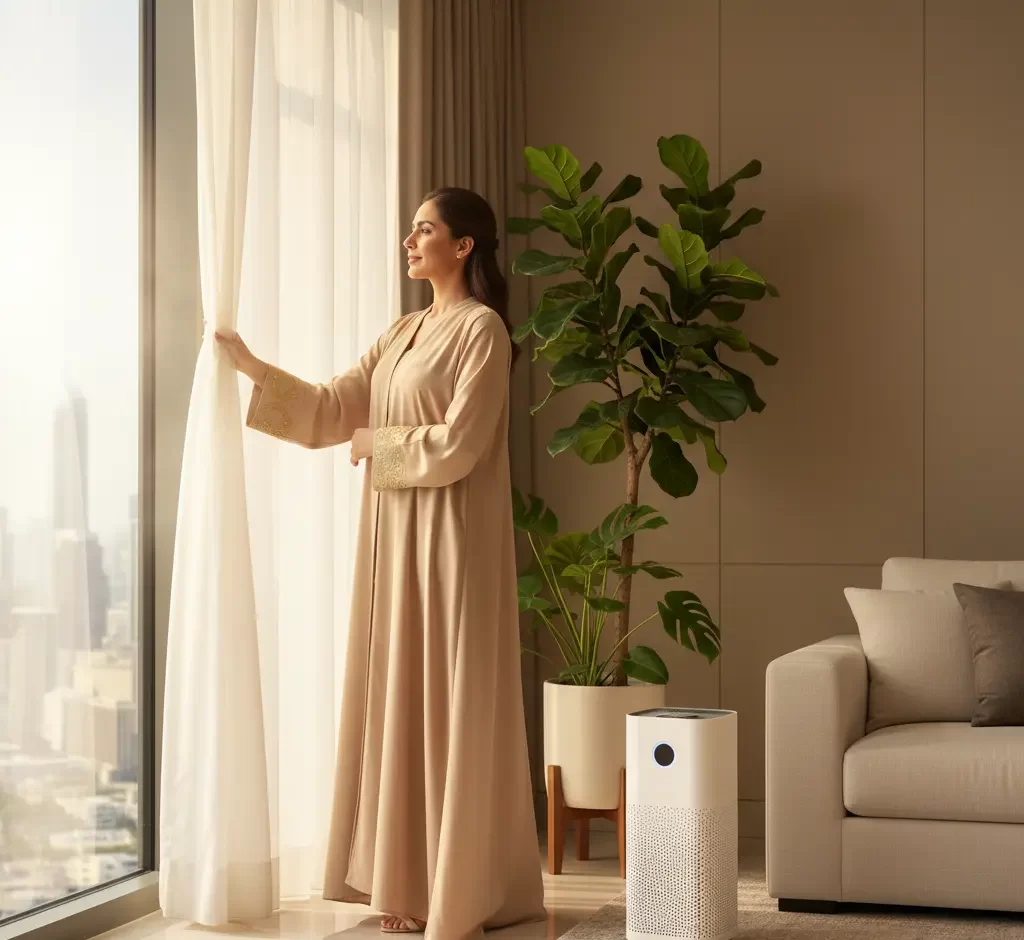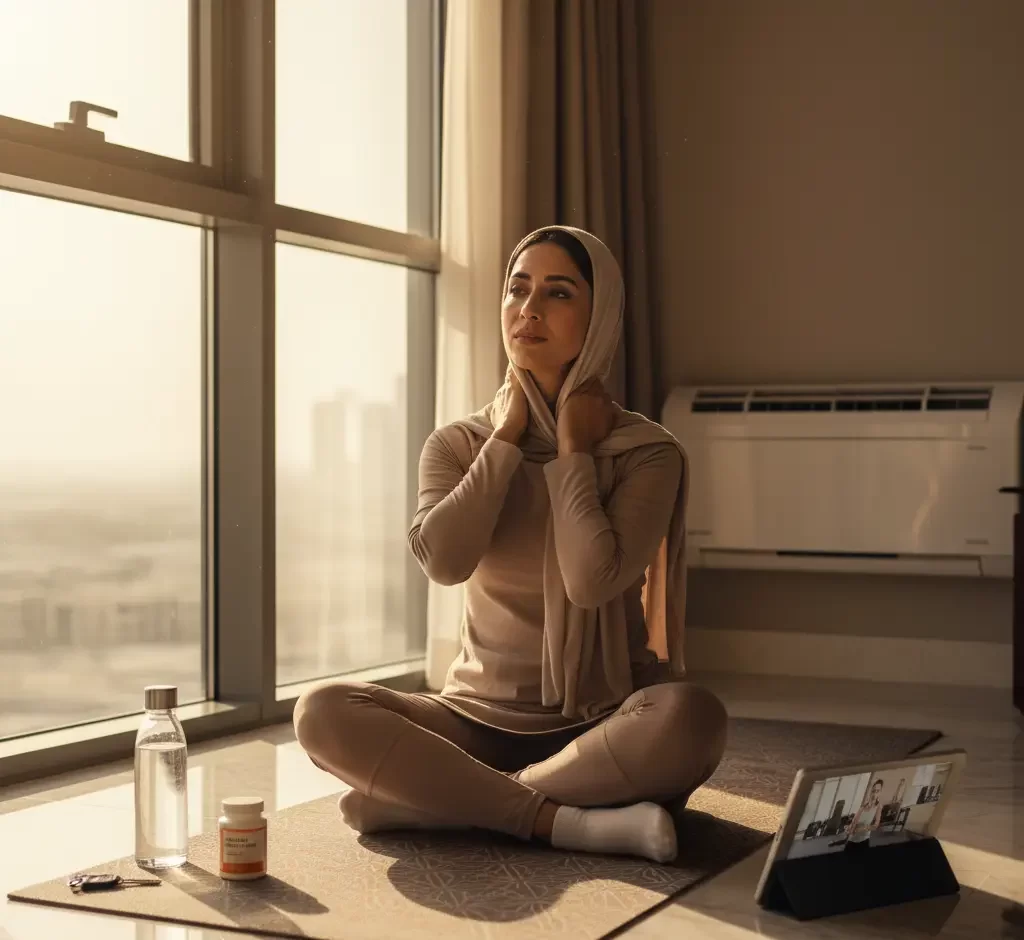Living in the UAE offers an exceptional quality of life—world-class infrastructure, diverse communities, and unparalleled opportunities. However, beneath the glittering skyline and luxurious lifestyle lie several hidden health risks that many residents overlook. Understanding these challenges is the first step toward protecting your wellbeing in this unique environment.
The Air Conditioning Paradox: Your Comfort Zone's Dark Side
When temperatures soar above 45°C, air conditioning isn’t just a luxury—it’s essential for survival. Yet this constant climate control comes with unexpected health consequences that affect millions of UAE residents daily.
The Cold Reality of AC-Related Health Issues
Respiratory Problems on the Rise
The stark temperature difference between outdoor heat and indoor cooling creates significant stress on your respiratory system. Moving between 45°C outdoor temperatures and 18°C indoor environments multiple times daily forces your body into constant adaptation mode.
This temperature shock can lead to:
- Chronic sinusitis and nasal congestion
- Persistent dry cough and throat irritation
- Increased susceptibility to respiratory infections
- Aggravation of existing asthma conditions
The Dry Air Dilemma

Air conditioning systems remove moisture from the air, creating an environment with humidity levels as low as 20-30%—far below the optimal 40-60% range. This excessive dryness affects multiple body systems:
- Skin: Accelerated moisture loss leads to premature aging, flakiness, and increased sensitivity
- Eyes: Dry eye syndrome becomes chronic, causing discomfort and potential vision problems
- Airways: Dried mucous membranes lose their protective barrier function against pathogens
Poor Indoor Air Quality: The Invisible Threat
While we worry about outdoor sandstorms, the air inside our homes and offices often poses greater health risks. Modern buildings in the UAE are sealed tight for energy efficiency, but this creates a perfect storm for air quality issues.

Common Indoor Air Contaminants:
- Mold and bacteria from poorly maintained AC systems
- Volatile organic compounds (VOCs) from furniture, cleaning products, and building materials
- Dust mites and allergens that thrive in carpeted, climate-controlled environments
These contaminants contribute to “sick building syndrome,” causing headaches, fatigue, difficulty concentrating, and long-term respiratory issues.
The Sedentary Lifestyle Trap: When Heat Keeps You Indoors

The UAE’s extreme climate creates an unintentional barrier to physical activity that many residents don’t recognize until health problems emerge.
The Eight-Month Indoor Sentence
From April to November, outdoor temperatures make exercise not just uncomfortable but genuinely dangerous during most daylight hours. This extended period of heat-enforced indoor living has profound consequences:
Physical Health Impacts:
- Weight gain and obesity rates significantly higher than global averages
- Increased risk of type 2 diabetes and metabolic syndrome
- Cardiovascular deconditioning despite gym memberships
- Vitamin D deficiency (yes, even in the sunniest country!)
Mental Health Consequences:
- Higher rates of anxiety and depression
- Reduced exposure to natural light affecting circadian rhythms
The Car Culture Connection
The UAE’s infrastructure prioritizes vehicles over pedestrians, and the climate reinforces this dependency. The average UAE resident walks less than 3,000 steps daily—far below the recommended 10,000. This car-centric lifestyle means:
- Minimal incidental exercise throughout the day
- Reduced calorie expenditure from daily activities
The Multicultural Health Challenge
The UAE’s diverse population creates unique health dynamics. Different ethnic groups bring varying genetic predispositions, dietary habits, and health beliefs, yet face common environmental stressors:
South Asian Communities: Higher genetic risk for diabetes and heart disease, compounded by dietary changes and sedentary lifestyle
Arab Populations: Increased prevalence of metabolic syndrome, often masked by traditional clothing that limits sun exposure
Western Expats: Lifestyle changes including increased dining out, and stress from being away from family support systems
East Asian Communities: Adaptation challenges to different climate and food availability, potential language barriers in healthcare access
The Work-Life Imbalance Reality
The UAE’s dynamic business environment drives economic success but often at a personal health cost.
The 24/7 Culture
Many industries operate around the clock, leading to:
- Irregular sleep schedules and shift work disrupting circadian rhythms
- Extended working hours without adequate breaks
- Eating patterns that don’t align with natural metabolic rhythms
- Chronic stress from high-performance expectations
Build Healthy Habits That Stick
- Hydration: Drink 3-4 liters of water daily, more during summer.
- Nutrition: Emphasize whole foods over restaurant meals.
- Sleep: Maintain consistent sleep schedule despite social temptations.
- Stress Management: Incorporate meditation, yoga, or other relaxation practices.
- Community: Build social connections for mental and emotional support
When to Seek Professional Help
Certain symptoms warrant immediate medical attention:
- Persistent fatigue despite adequate rest
- Unexplained weight changes
- Chronic respiratory issues or frequent infections
- Skin problems that don’t resolve with moisturization
- Mood changes affecting daily life
- Sleep disturbances lasting more than two weeks




